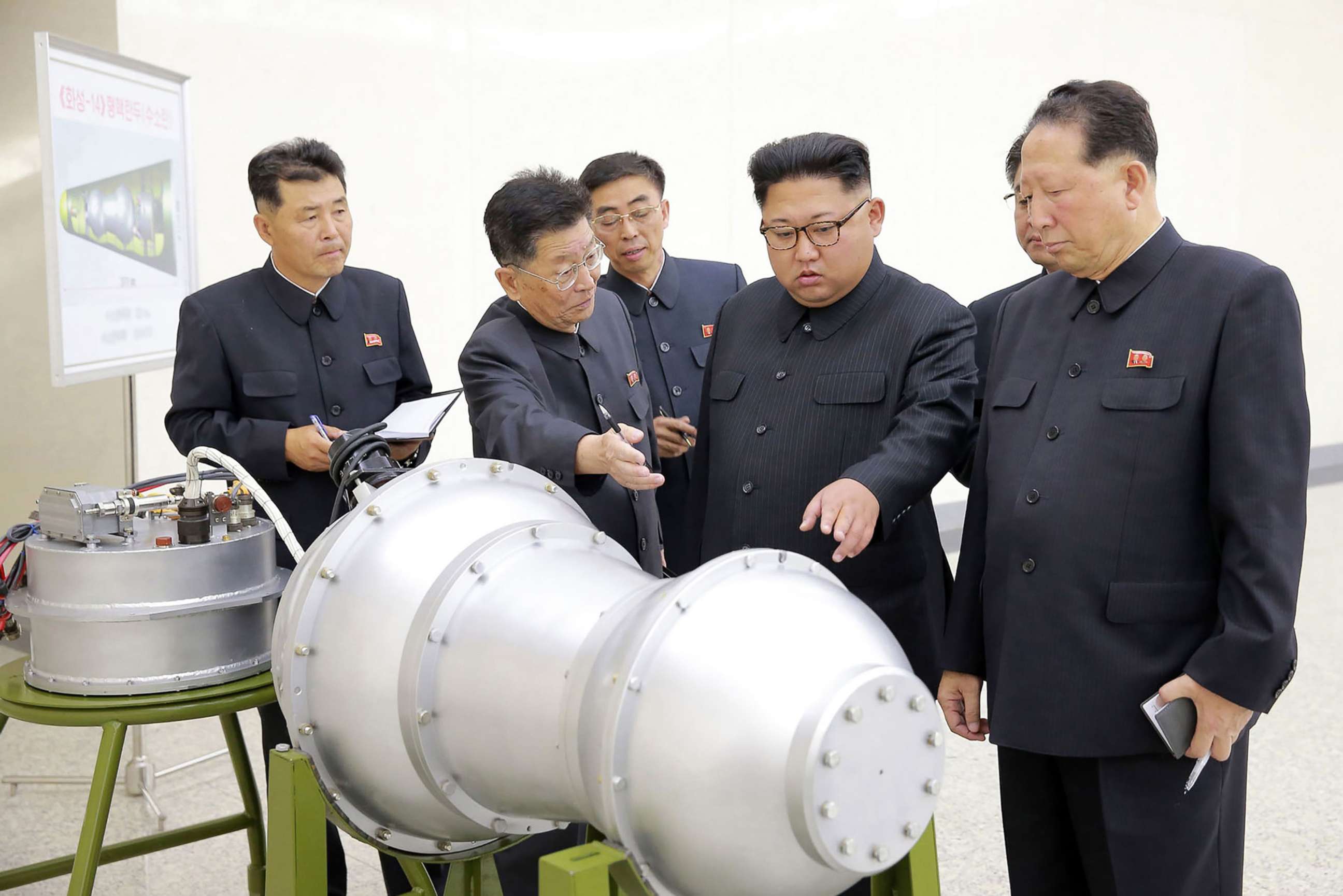UN Security Council unanimously approves new sanctions on North Korea
The sanctions include caps on oil imports.
— -- The United Nations Security Council on Monday unanimously approved a new round of sanctions on North Korea, one week after the country conducted its sixth and strongest nuclear test to date.
The new sanctions ban 90 percent of North Korea's publicly-reported exports and cap the amount of oil the country is able to import, according to a U.S. official familiar with the negotiations.
“We are very pleased with this package," the official said of the resolution, even though it required U.S. concessions to China and Russia to win approval. "This is the strongest set of sanctions that the Security Council has imposed. It represents yet another major step.”
The official defended the U.S. mission from critics who say the sanctions were watered down, arguing an early draft from the U.S. was given to the press to place pressure on any who might seek to soften the sanctions. The final resolution was the result of “tactical calls” to “get strong results” and get everyone on the Security Council on board, the official added.
Following the vote, U.S. Ambassador to the United Nations Nikki Haley portrayed North Korea as increasingly isolated.
"It is dark and it's getting darker," Haley said. "The entire international community is united against its dangerous, illegal actions."
Haley further addressed the North Korean regime directly, saying it is not too late to change course.
"We don't take pleasure in further strengthening sanctions today," said Haley. "We are not looking for war. The North Korean regime has not passed the point of no return … If it proves it can live in peace, the world will live in peace with it."
"The choice is theirs," she added.

Among the provisions that were in a draft proposal, but not the final resolution were a total oil embargo and a freeze on the assets of both North Korean leader Kim Jong Un and the national airline.
Instead, the resolution caps refined oil imports at 2 million barrels and crude oil imports at their current levels. It also bans North Korean exports of textiles, a $726 million industry, and phases out North Korea’s overseas labor program, which sends 93,000 North Koreans abroad to work in near slave conditions and send their pay back to the regime.
Haley addressed the question of how to enforce the sanctions, saying it would present a challenge but expressing optimism given Chinese cooperation on the resolution.
“We all know these steps only work if all nations implement them completely and aggressively,” said Haley, adding the resolution “would not have happened without the strong relationship between President Trump and President Xi, and we greatly appreciate both teams.”
Prior to the approval, Trump and the U.S. treasury secretary threatened to impose unilateral sanctions against any country that trades with North Korea if the Security Council was unable to come to an agreement.
Though Russia voted in favor of the resolution on Monday, President Vladimir Putin earlier downplayed the effectiveness of sanctions given North Korea's unrelenting nuclear ambitions.
“In North Korea they will eat grass but still not give up this [nuclear and ballistic missile] program," said Putin.




